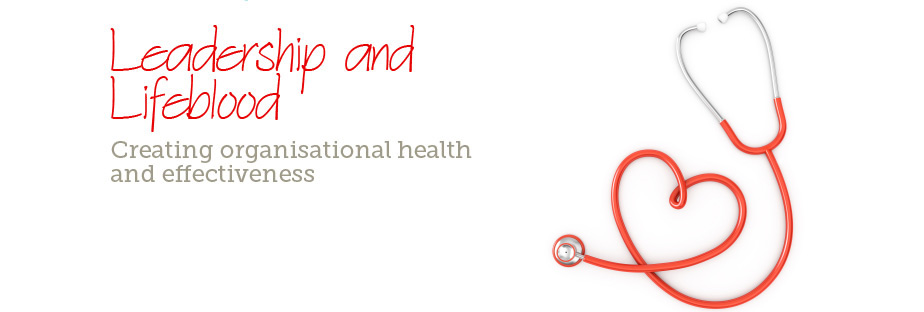People always trot out the cliché that ‘knowledge is power’ and there is a great deal of truth in this, if used in the right way!
Knowledge is first and foremost a visible measure of your personal credibility.
Remember the Chief Executive of Barclays, Bob Diamond, who faced a House of Commons Treasury Select Committee investigating his supposed lack of control over banking practices. John Mann MP asked him ‘I just wonder, Mr Diamond, if you could remind me of the three founding principles of the Quakers who set up Barclays?’ Bob responded ‘I can’t Sir’. John Mann replied ‘I can help, and I could offer to tattoo them on your knuckles if you want, because they are honesty, integrity and plain dealing. That is the ethos of this bank’ … how embarrassing that as Chief Exec of Barclays he had no knowledge of these fundamental principles.
Secondly your knowledge puts you in control of events
Sheldon, in 1923, wrote ‘Management is no longer the wielding of the whip; it is rather the delving into experience and the building upon facts. Its leadership is based upon knowledge rather than force’. It’s still true today.
Thirdly, your knowledge indicates your command of the situation.
An informed position shows clarity of thought, focus and self-confidence. This is a leader in control of their business, and who is best placed to decide which direction they shall lead it into the future.
It also puts you firmly in command of your team – if you know the direction you are heading in, and can demonstrate that this direction is justified through the knowledge you hold, they will follow!
So how does your team know you have this insight, understanding and clarity?
Knowledge has to be on display, visible, available like the goods in a shop. Unless people can come and browse, your knowledge remains without real value. Empowering others requires your support for them, and the knowledge required to provide viable support has to be learned, by you. Be a sponge. Have an appetite to know it all!
Knowing is better than not knowing!
One of the key characteristics of outstanding leaders is their inquisitive nature – question everything! Don’t be satisfied with not knowing. How efficient is your organisation. What annoys your team about processes and procedures? How are your customers feeling right now about you?
A good knowledge of your job will aid your performance at many levels. Gain the advantage by possessing as much knowledge as you can. There are very few things as impressive as being able to converse with the leader of an organisation who truly knows what is really going on within it.
It is easier for certain individuals to understand and remember large quantities of information than others. I am finding it harder the older I become! Re-writing facts and quantifying details in lists is a useful tool. I do find it is easier to remember information and read about things when I have a genuine interest in them. Even when it is a ‘dry’ subject the more I look into it the more obsessed I become about knowing everything. Usually all it needs is to actually make a start and then a thirst for knowledge kicks in. It is a great feeling to be the ‘resident expert’ on a subject
Life saving surgery – the day job!
Surgeons do an amazing job. Anyone that plunges a knife into a person, fiddles around with vital organs, and ensures the patient lives to see another day deserves respect. I think it would be fair to say that we are in awe of these professionals, who do a marvellous job. A good friend of mine is a heart surgeon yet upon observing him I find he is no more dextrous with his hands than anyone else. He does not possess a remarkable aptitude for life, nor does he excel in all fields. He is no medical pioneer. He has no superhuman skills. He has learnt a trade, and is extremely competent at it. It is his knowledge of the task that makes him a surgeon. He knows what to do.
It is important to ask questions of those above and below you in your company. This will improve communication with colleagues, and they will respect the interest you show. Ask about their jobs for they are the only people who fully understand their role. However much you think you already know what they do, you will be surprised how much you can learn. People who work for you will be able to tell you the difficulties they have and any opportunities for improvement they have identified far more clearly than you would have discovered for yourself. They sometimes already have the solutions to problems, but will simply not tell “management” unless someone shows enough interest to ask them.
People may feel it is not their place to speak out and suggest how to improve their jobs. Sometimes they are too busy actually doing their jobs to identify solutions, but you can be sure that they will be aware of all the problems. Talk to your team, and more importantly listen to them. Build relationships, build their loyalty, and build up your own knowledge. Not everything you need to know will be offered to you. Dig for the detail.
You can manage what you know, and lead with certainty and authority. It’s what you don’t know about that should worry you!
It is hard to know every fact about every initiative at all times, but an outstanding leader will have a real understanding of every aspect that is, can and will make a difference to your business. Not just principles but their application. Not just performance but the risks, drawbacks and opportunities being faced day by day.
Attention to detail does not distract a leader from seeing the bigger picture – it just provides clarity of vision. The picture needs to be in focus, you see the whole screen but you see high definition!
Your picture needs to be complete. A jigsaw is not complete without having sight of every piece. Your obsession with detail should extend to the rest of the team. Encouraging others to check details will reduce mistakes, and improve understanding and responsibility.
Knowledge may well be power, but it is a useless tool if it is not shared, and used to benefit the business. Real power lies in your ability to lead a powerful collection of individuals, each providing their unique efforts to benefit the team as a whole. Use your knowledge of the detail to provide flexibility and options, not rigidity and narrow vision.
An important part of learning about your organisation, is how you ask others to share their thoughts, knowledge and opinions with you. Gathering key information to later ‘use against them’ when things go wrong, will not build up relationships that will feed your thirst for knowledge! Asking how things can be improved, then working to develop and implement solutions, builds the openness and credibility that will induce others to share with you.
Knowledge is truth!
Never assume anything! The disadvantage about leading your team is that they will all want to be seen in a good light. Bad news becomes filtered, risky but probably worthwhile opportunities remain unspoken, and a sanitised version of life is all that reaches you!
No one else but you are responsible for making sound decisions that may only be based on the information available to you – so check its value and quality!
There is no point in making things look right if they are not right – and you need to know so you can make it right. You should instil in your team the need to ‘tell it as it is’ and not what they believe you want to hear. You can only manage what you know about. I emphasise for your sake; never assume anything.
What goes on outside is equally as important
Concentrating only on what happens within the walls of your own organisation runs the risk that in your mind your business becomes an abstract exercise, devoid of any reality. There are many players in your field, all aiming to be number one – and you have to be sharp to stay ahead of the pack, and have any chance of reaching the finishing line first.
People say ‘experts’ have much detail and no judgement! I believe outstanding leaders should strive to learn the details, to make their judgement process more effective. An expert can help your understanding but ultimately you have to make the judgement call, and if you already hold in your head a surge of knowledge, you will find good judgement easier to achieve.
So knowledge is power?
Knowledge may not always be ‘power’ in terms of building up a personal power base, but it is powerful in terms of building your personal resilience, credibility and reputation.
The knowledge you attain will also have its own power in terms of building up your inner self-confidence and personal self-assurance that you are ‘doing the right thing’
Finally, your knowledge helps others. It helps everyone when you share it with them – to both understand more themselves and in their realisation that you are a credible leader. It also helps you support individuals when you empower them. Not a bad return for investing in a little understanding!
Successful people always have a deep and impressive knowledge about the field in which they have found their success.
John F Kennedy is quoted as saying ‘Leadership and learning are indispensable to each other’.







